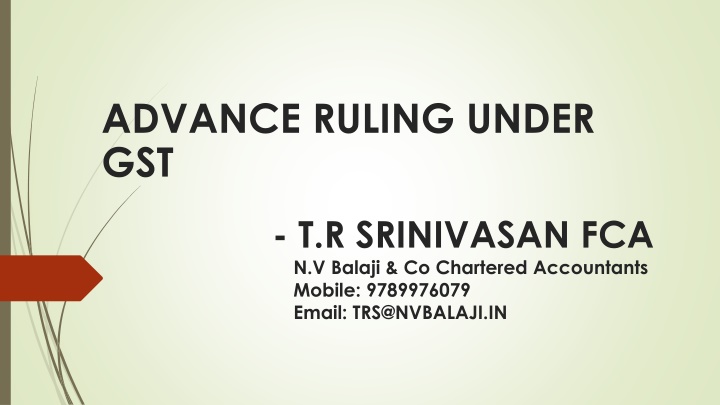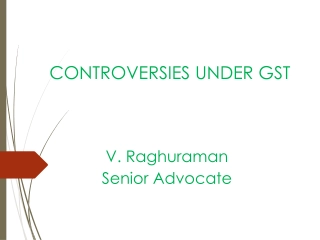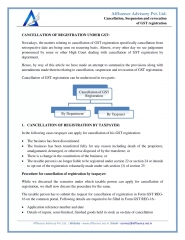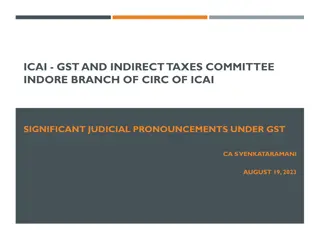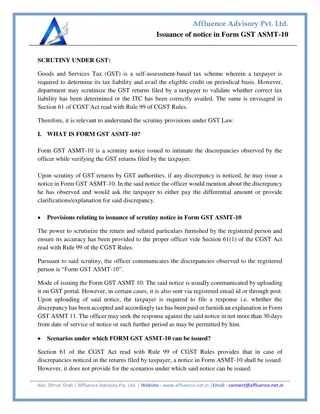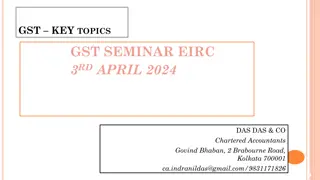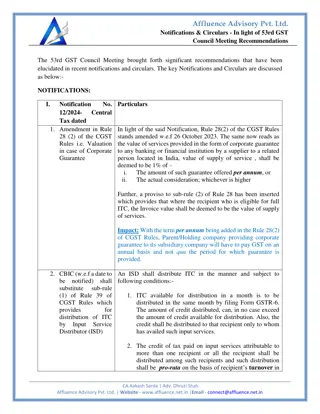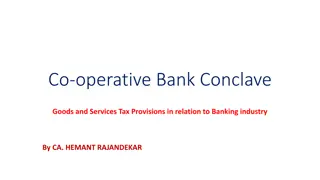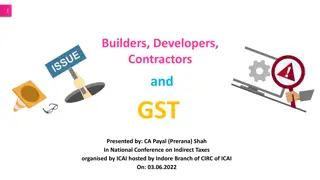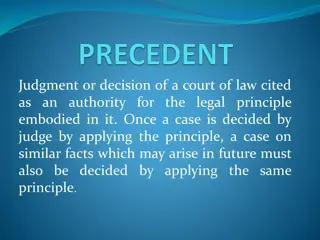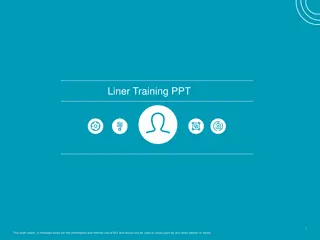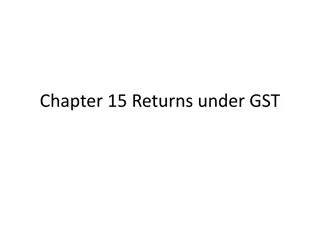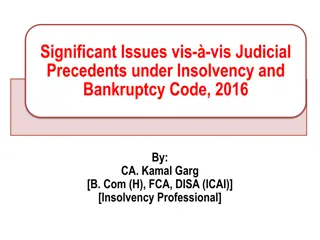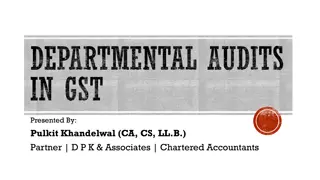Advance Ruling Under GST - Legal Issues and Judicial Precedents
A comprehensive overview of legal issues surrounding Advance Ruling under GST, including the binding effect, jurisdiction, and judicial precedents. Insights on the powers, limitations, and potential challenges faced.
Download Presentation

Please find below an Image/Link to download the presentation.
The content on the website is provided AS IS for your information and personal use only. It may not be sold, licensed, or shared on other websites without obtaining consent from the author.If you encounter any issues during the download, it is possible that the publisher has removed the file from their server.
You are allowed to download the files provided on this website for personal or commercial use, subject to the condition that they are used lawfully. All files are the property of their respective owners.
The content on the website is provided AS IS for your information and personal use only. It may not be sold, licensed, or shared on other websites without obtaining consent from the author.
E N D
Presentation Transcript
ADVANCE RULING UNDER GST - T.R SRINIVASAN FCA N.V Balaji & Co Chartered Accountants Mobile: 9789976079 Email: TRS@NVBALAJI.IN
LEGAL ISSUES AAR is binding on the applicant and the jurisdictional authority Plan B should be ready in case of an adverse order. No time limit for AAR ruling unlike customs advance ruling , the validity of the same expires by 3 years; Whether the term change in law u/s 103(2) would include Judge made Law to lapse the validity of GST AAR (Whether SC / HC judgement will nullify the AAR in terms of 103(2)?). Answer is yes as there is no estoppel in law against a party in a taxation.
LEGAL ISSUES cont. Principles of natural justice would ensure that there is no bias involved in the process of adjudication. However, this may not be entirely true as AAR mechanism is handled by Junior level officers of Revenue Administration whereas in Customs AAR, Senior Most Authority is handling the AAR functions. POS queries and beyond AAR jurisdiction Interstate transactions are imperative for organisations operating across India and certainty on POS is very vital. Questions to be framed in such a way that POS does not get triggered
LEGAL ISSUES cont. Writ against AAR / AAAR possible? Courts have taken varied stance on this. Unlike, customs AAR, where specific statutory remedy is available, no such specific provisions in AAR.
BINDING EFFECT ON CIRCULARS ON AAR AND POWERS OF AAR
Judicial precedents on the role and powers of AAR and binding effect of circulars on AAR
In Columbia Sportswear v. DIT (2011) 12 SCC 224, a three-judge bench of Hon ble Supreme Court examined the role of the AAR and held that it exercised judicial power and was also a Tribunal . It exercises judicial power because, unlike an assessment order, the Authority gives notice to the Department and hears both the assessee and the Department. In the case of Commnr. of Central excise, Bhopal Vs Minwool Rock Fibres Ltd 2012 (278) E.L.T. 581 (S.C.), it was held that the departmental circulars are not binding on assessee or quasi-judicial authorities or courts. (Para 14)
PARTICAL ISSUES IN AAR and strategy to be adopted before filing AAR
APPROACH STRATEGY When to go far AAR? Department highlights the following in the flyer: Provide certainty in tax liability in advance in relation to an activity proposed to be undertaken by the applicant; Attract Foreign Direct Investment (FDI). Reduce Litigation. Pronounce ruling expeditiously in a transparent and inexpensive manner.
OUR SUGGESTIONS Ideally the AAR option to be considered in the following areas from a practical perspective: Clarification with respect to rate of duty when the applicant is certain with respect to their stand taken but to ensure clarity and pre-empt competition; Business clarity in availing ITC. Taking out registration by foreign operators for isolated transactions;
Besides the above, the approach strategy & questions framed are very important. Any lapse could result in disaster (E.g, query on credit reversal for free gifts to dealers with another query whether the same could be considered as disposal of business assets - credit allowed but final leg held as taxable supply). Fairly settled issues with the possibility of manageable litigation - DO not opt for AAR (Eg, TI advance ruling on Canteen recovery despite several favourable rulings) Recommended issues - ITC availability, clarity on rate (particularly to pre-empt the competition, etc.); Multilocational distinct persons - should be careful in seeking advance ruling in different States with the possibility of different rulings leading to business confusion.
When the recipient is eligible to avail full ITC and there is a dispute between the supplier and the recipient AAR is ideal AAR can be used for strategic approach AAR in the case of OLA Ensuring a cross charge invoice is outward supply may be to ensure ITC as recipient end and avoid inverted duty No AAR when the issues is to contested legally as there is a general pro-revenue approach
